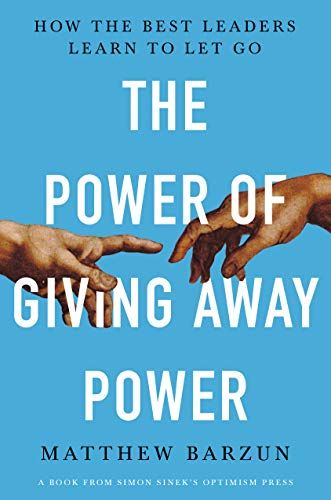Former US Ambassador to the United Kingdom Matthew Barzun offers an articulate methodology for sharing knowledge and power in mutually beneficial collaborations.

Share To Succeed
Matthew Barzun, a board member of the National Constitution Center and former US ambassador to Sweden and the United Kingdom, builds a compelling case for achieving collaborative, inclusive leadership through diversity, cooperation and co-creation. He offers telling examples, including the work of leadership guru Mary Parker Follett and Barack Obama’s campaign style, which Barzun experienced from the inside. He makes his points so effectively you may mourn that so few leaders embrace his methods.
Barzun’s wide-ranging scholarship and astonishing multilevel understanding of history, politics, literature and management demonstrate that he is a singular thinker, with a holistic view of human processes few can equal. Happily, he explains this view so well that everyone can share his values and, perhaps, find inspiration.
Co-Creation
Barzun’s central thesis is that leaders can attain greater effectiveness by giving away and sharing power through co-creation and deep listening.
We hate the anxiety of uncertainty. Pretending is the price we pay to remove it.Matthew Barzun
For example, in the 2008 Democratic Party’s presidential primaries, Barack Obama campaigned against Hillary Clinton’s political machine, which boasted paid staff and offices in every state.As Obama listened to people in farm fields and coffee shops, he extended power, responsibility and decision-making down to the greenest volunteer and turned his campaign into a juggernaut.
Constellation to Pyramid
In 1782, Congress unanimously adopted the Great Seal of the United States: an American bald eagle clutching arrows and olive branches under a constellation of 13 stars representing the original 13 states.
This Constellation pattern of principles, habits and sentiments achieved something big through many actions that were quite small.Matthew Barzun
For the next 150 years, constellations of people solving problems and seizing opportunities energized America. The United States didn’t require big government until the Great Depression in the 1930s.
In 1934, President Franklin Delano Roosevelt placed a pyramid design on the back of the new $1 bill.Through World War II and the Cold War, the Pyramid approach dominated as federal powers grew and centralized, and top-down leadership – with its emphasis on planning, hierarchy, and leaders who assigned roles and goals to their followers – dominated the business landscape.
In the Constellation mind-set, we set ourselves in motion toward possibility, not toward a set destination, allowing for many branching paths.Matthew Barzun
Powered by the World Wide Web, a fresh consciousness around teamwork and flatter organizations emerged and embraced the Constellation mind-set. But the internet didn’t unite people. It divided them further.
Barzun believes the Pyramid mind-set will dominate until people make a conscious leap toward freedom and autonomy in collaboration with others, not separate from them or above or below them.
Wikipedia
Around 2000, Jimmy Wales sought to build an online encyclopedia. He recruited volunteer academics to craft entries, but the process didn’t scale. Wales and his team decided to let anybody who wanted to write articles submit them and to have users fact-check each other.Thus began Wikipedia, which became history’s largest repository of human knowledge.
Never have we been so connectable and never have we felt so disconnected.Matthew Barzun
By enlisting ideas and engagement from millions of volunteers, Wales’ Constellation mind-set generated unimaginable scale, depth and speed.
Mary Parker Follett
In the 1920s, American business evolved to encompass assembly lines and mass production, with management influenced by Pyramid-thinkers like Frederick Winslow Taylor. The mostly forgotten, but in Barzun’s eyes, the most influential business guru ever – Mary Parker Follett – preached the “power of giving away power.”
Follett studied current and former speakers of the House of Representatives and found that successful speakers built consensus by distributing power. She realized that people and groups should negotiate not to win, acquiesce or compromise, but to integrate each other’s ideas to produce something bigger and better than any one group’s or person’s vision. She earned a national and international audience in the 1920s.
Follett knew from both observation and participation that human energy could be created and kindled or smothered and killed based entirely on what mind-set we each brought to the encounter.Matthew Barzun
Regrettably, at the peak of Follett’s influence, in the late 1920s, the economy crashed and the Pyramid mind-set overtook the Constellation.
Barzun cites how Steven Covey’s The 7 Habits of Highly Effective People and other contemporary business bestsellers channel Follett by encouraging deep listening, win-win solutions and a broad range of ideas. However, he notes, American businesses still emphasize independence over interdependence, and winning over everything.
Interdependency
Google has a corporate belief in the power of interdependency. On Google’s best teams everyone matters, no one is subordinate and relationships rule.
The Constellation mind-set draws its power from those things we do with our greatest sense of participation and involvement, those things we care about most and can never win: relationships.Matthew Barzun
Barack Obama mastered the art of creating special relationships by listening a lot and speaking a little. In his first presidential campaign, Obama sought many small donations instead of a few large ones. He spoke to big crowds of small donors more often than at dinners for a few big donors. He quickly surpassed Hillary Clinton’s fundraising efforts, although her database of donors was 25 times larger than Obama’s database.
Washington, DC
In Obama’s first term, Barzun served as ambassador to Sweden. After Obama’s 2012 reelection, he became ambassador to Great Britain. Barzun adopted the ideas and energy of Obama’s first campaign – which he calls Constellation leadership – as a senior diplomat. Unlike previous ambassadors, he visited smaller towns and cities to listen to a diverse range of people.
An idea is at best an unlit lightbulb. And so are we without other people. To produce our light, we need the same two things a lightbulb needs: energy and a connection. Matthew Barzun
He spoke of changing from listening to your inner voice to sharing it, from embracing failure to embracing uncertainty, from never giving up to giving up power, and from working hard to working hard with others.
A Vital Work
Barzun’s passion for interdependence and people collaborating to solve problems exposes – depending on your politics – either a tragically ironic or happily exultant strain in contemporary American society. The extreme right wing has embraced some of what Barzun preaches, while omitting his treasured embrace of diversity and rejection of Pyramid power. Those movements – and others showcasing citizens banding together – illustrate Barzun’s insights into the pure power available in focused communal efforts. His brilliance shines throughout this prescient, vital work.
Other works addressing themes around sharing power include Leaders Eat Last: Why Some Teams Pull Together and Others Don’t by Simon Sinek, Dare To Lead: Brave Work, Tough Conversations, Whole Hearts by Brené Brown and Inclusion: Diversity, the New Workplace & the Will to Change by Jennifer Brown.





